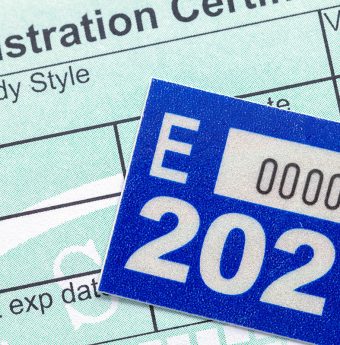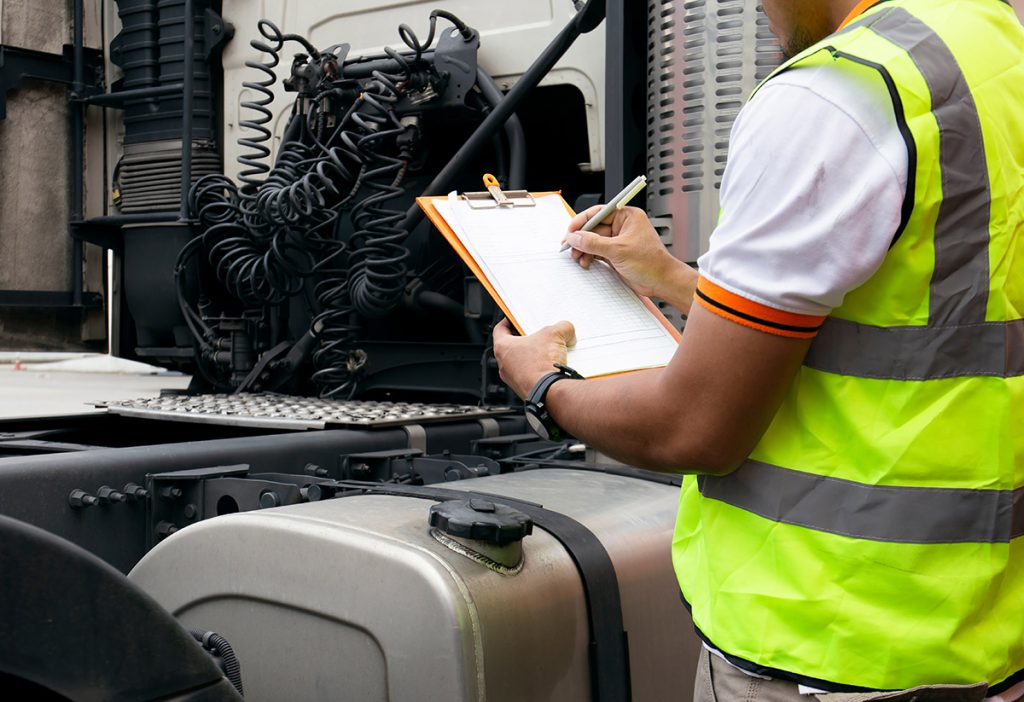New York Car Registration

Are you a New Yorker in need of information on car registration? Look no further. This blog post has all the answers you need to know about registering your vehicle in the state of New York. Whether this is your first time or you’ve registered cars with NY DMV before, we have useful knowledge and tips that can make the process smoother for you.
New York requires you to register a car and title one of its NY DMV offices in person. This process includes bringing identification, filing the MV-82 form, showing ID/insurance/ownership, and paying registration & license plate fees and state taxes.
The registration process is quick and easy if you follow this guide.
New York Vehicle Registration: Step-by-Step
Vehicle registration depends on whether the car is new or used. You will have 30 days after its purchase to get it registered. Every vehicle – driven or not – requires insurance.
What you’ll need to collect/bring:
- Proof of vehicle ownership
- Proof of ID or NY License
- Proof of insurance (FS-20)
- Proof of vehicle inspection (if transferred)
- Completed Vehicle Registration/Title Application (MV-82)
The registration fees vary by vehicle age, type, and value; apply if you haven’t yet registered.
Register a New Car with Dealership
New cars bought through dealerships submit vehicle documentation to the NYS DMV. The dealership would assist you in getting an insurance card, paying for registration and getting a bill of sale.
What’s next?
- Get insurance
- Go to the DMV office
- Provide proofs, submit forms, and pay the registration
It’s important to get your bill of sale from the dealer, as you’ll pay state taxes during registration. You will also want to note the mileage while filing your car’s title & registration.
Register a Used Car in New York
Registering a used car has a similar process. Individuals buying a used car must be inspected when transferring a title.
Then:
- Have the seller sign the title in your name
- Both sign the Statement of Transaction Sales Tax Form (DTF-802)
- Bring ID, vehicle title, and proof of insurance (FS-20)
- Provide an applicable inspection certificate
- Submit the Vehicle Registration/Title Application (MV-82)
- Pay the tax, registration, and plate fees
You will receive:
- A copy of the transaction
- License plate and registration sticker
You’ll get the plate and tag on the spot, letting you roll out of the parking lot and back onto the roads.
Vehicles With Liens
If you have a car loan and your title is held by a lienholder, the New York State DMV will note this on your registration and title.
Go to the local Department of Motor Vehicles and submit a copy of your vehicle title that has been certified by the lienholder. The certification and the copy of the title need to be on the same page.
Obtain a statement from the lienholder on their official company letterhead that:
- Identifies the owner of the vehicle
- Get the following: the year of the car, its make and model, and the vehicle identification number (VIN).
- This statement indicates that the lienholder holds the original title and is aware that the vehicle owner is registering the vehicle in New York. However, the lienholder statement cannot ask for registration notification from the NYSDMV as they do not offer that service.
Once you have obtained all the required documentation from the lienholder, you will need to present the New York State Insurance Card (Form FS-20) and complete both the vehicle registration title (Form MV-82) and the Claim for Sales Tax Exemption ( Form DTF-803).
Once all the forms are complete, you will need to pay the registration fees based on the vehicle’s weight.
Transferring Registration from Another Vehicle
If you have sold or given away a vehicle, you can transfer its registration and plates to another vehicle that you own. To do this, you will need to bring all the necessary vehicle registration documents along with a completed Statement of Transaction to your nearest DMV office.
If you have recently purchased the vehicle and do not have the title or transferable registration in your name yet, you must provide the Statement of Transaction. Please note that vehicle registration details in New York are not publicly
Vehicle Inspection
In New York State, all vehicles are required to pass a DMV safety inspection. The inspection is conducted at the DMV license stations across the state. You need to have your vehicle inspected every 12 months or after a change of ownership.
A valid inspection sticker must be displayed on your vehicle, and it must be current. Inspections expire on the last day of the month punched on the sticker. If your inspection is expired, you will not be able to renew your registration, as the DMV gets a record of your inspection to keep on file with your vehicle registration.
- You cannot renew your registration.
- Get a parking ticket.
- You can get a fine
How Long Does a Vehicle Inspection Take in New York?
In New York State, it is mandatory for all vehicles to have an updated inspection sticker annually. To obtain this sticker, you need to visit an inspection station where a technician will perform a comprehensive check on your vehicle this takes about 45 minutes to complete. If your vehicle passes the inspection, you will be provided with a color-coded sticker which you must stick on your windshield.
Emission Inspection
During a safety inspection, gas vehicles must also pass an emissions check. Some vehicles are exempt from the emission test:
- Motorcycles
- Electric Vehicles
- Historial Plates
- Less than two years old (model year >= calendar year – 1).
- Vehicles that are more than 25 years old (i.e., their model year is less than or equal to the calendar year minus 25).
- Diesel-powered vehicles manufactured before 1997 or with a GVRW of over 8,500 pounds are not allowed.
Diesel Emission Test

There are different requirements for diesel vehicles registered in the Diesel Emissions Metropolitan Area (DEMA) which includes Nassau County, Suffolk County, Rockland County, Westchester County, and New York City.
DEMA
If your diesel-powered vehicle is not exempted and has a maximum gross weight (MGW) exceeding 8,500 pounds, it is required to undergo an annual diesel emissions inspection. This inspection must be done concurrently with the yearly safety inspection.
NON DEMA
All diesel-powered vehicles over 8,500 pounds MGW are exempt from annual diesel emissions inspection but may face random roadside inspection.
All diesel-powered motor vehicles that are not exempt and have a model year greater than the current year minus 25 and less than or equal to the current year minus two, and with a gross vehicle weight rating (GVWR) less than 8,501 pounds must receive an annual OBDII emissions inspection if they are registered anywhere in New York State.
These vehicles are not subject to diesel emissions inspection. For instance, in 2023, vehicles with model years between 1999 and 2021 will be subject to OBDII inspections.
Diesel-powered vehicles with a model year 25+ years old or > current year -2, registered in NY State and with GVWR < 8,501 lbs, are exempt from emissions inspections. E.g.: In 2023, the exempt vehicles are from 1998 or earlier, and 2022-23.
Non-DEMA Diesel Roadside Inspection
Any diesel vehicle in New York State with MGW over 8,500 lbs can be required to pass a random roadside emissions check.
The New York State Police and the New York State Department of Transportation are responsible for carrying out vehicle inspections. In case the vehicle fails the inspection, the driver may be issued a summons and a fine of $700 for the first offense and $1,300 for any subsequent offense.
However, the driver can decrease the fine amount if they get the vehicle repaired and pass the re-inspection at a DMV-licensed facility within 30 days of the violation.
How Much is a New York Car Registration?
New York vehicle registration wholly depends on which county it’s registered.
Typical fees include:
- Title Fee: $50
- License Plate Fee: $25
Sales tax depends on your county and jurisdiction. You may need to pay an extra $32.50 if you operate an electric or 6-cylinder+ vehicle. This extra fee covers two years.
See the Passenger Vehicle Registration Fees, Use Taxes, and Supplemental Fees for more information.
Need to Renew Your Vehicle, Instead?
A car tag renewal is almost identical to the registration process. Learn what you’ll do with our New York Car Renewal Guide.
Conclusion
All in all, registering a car in New York can initially seem daunting; however, it doesn’t have to be. Planning and researching any potential requirements for registering your car is key to ensuring an efficient registration experience.
It’s also important to remember to follow all applicable laws and regulations, as failure to do so may result in violations or other consequences across states.



